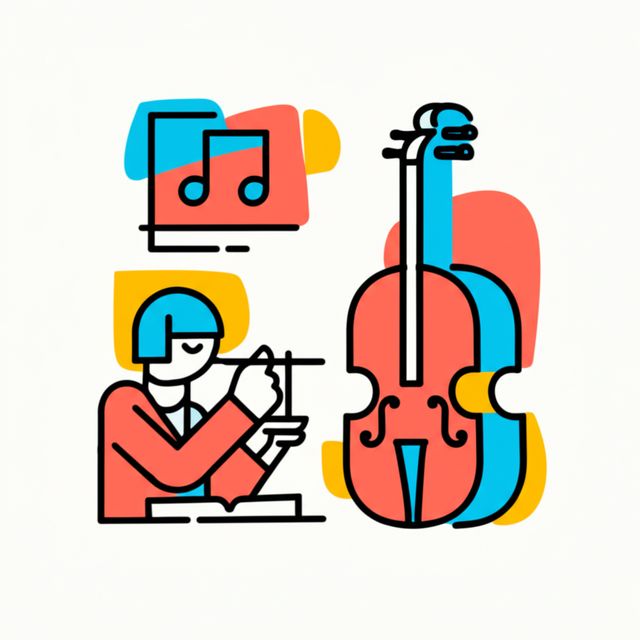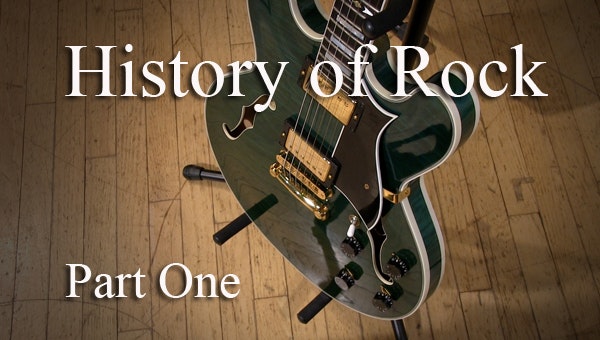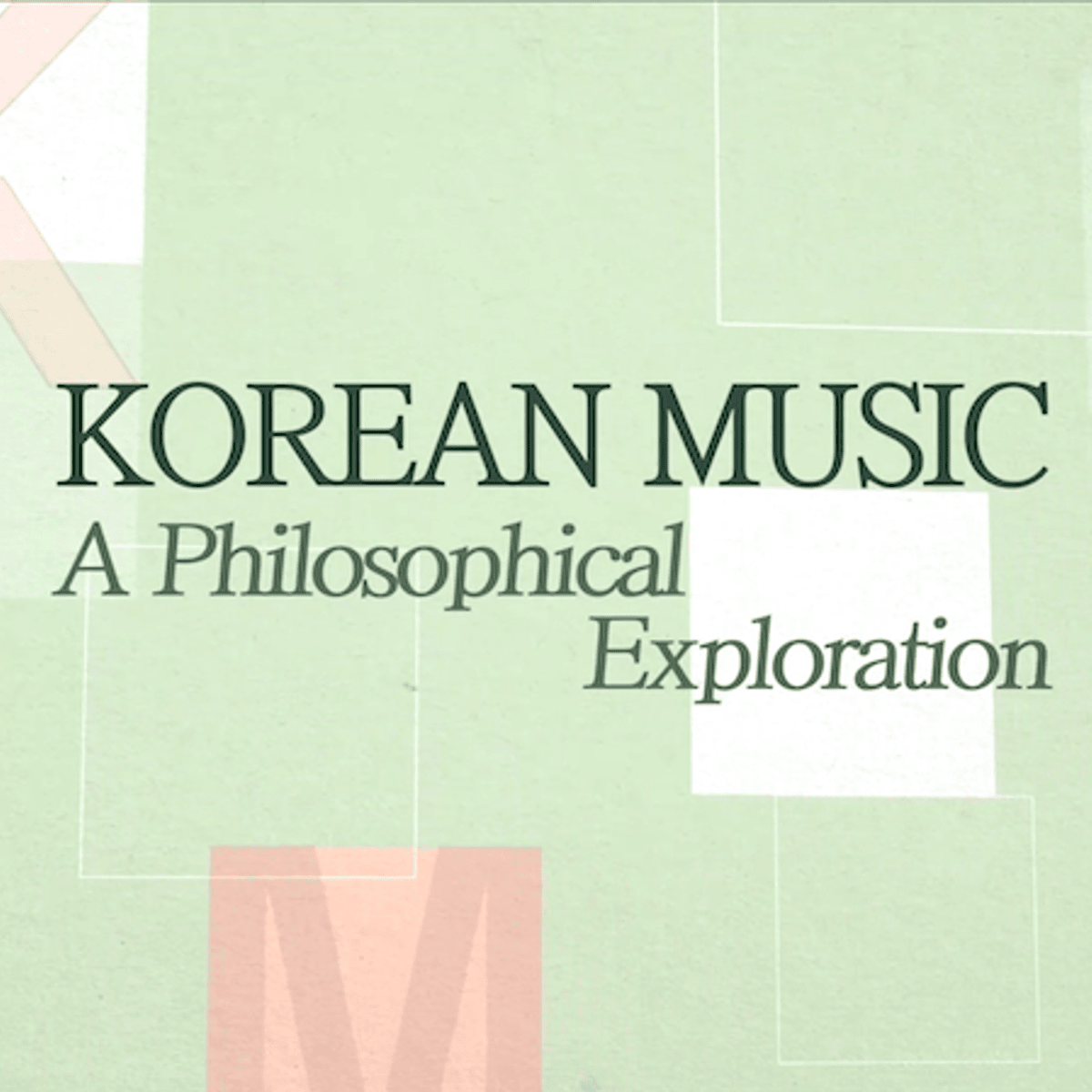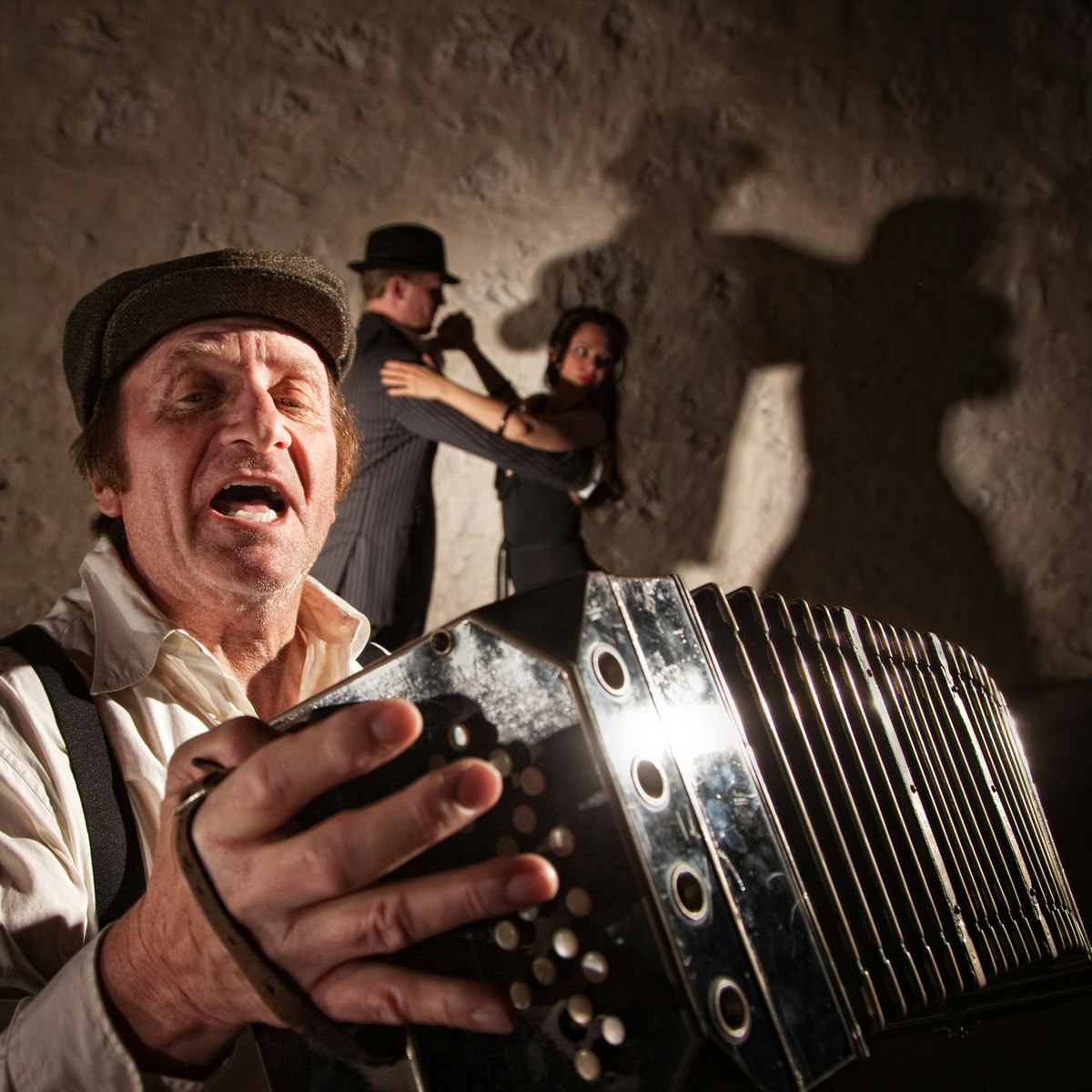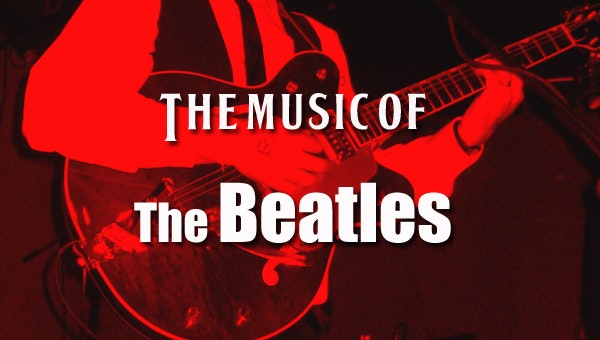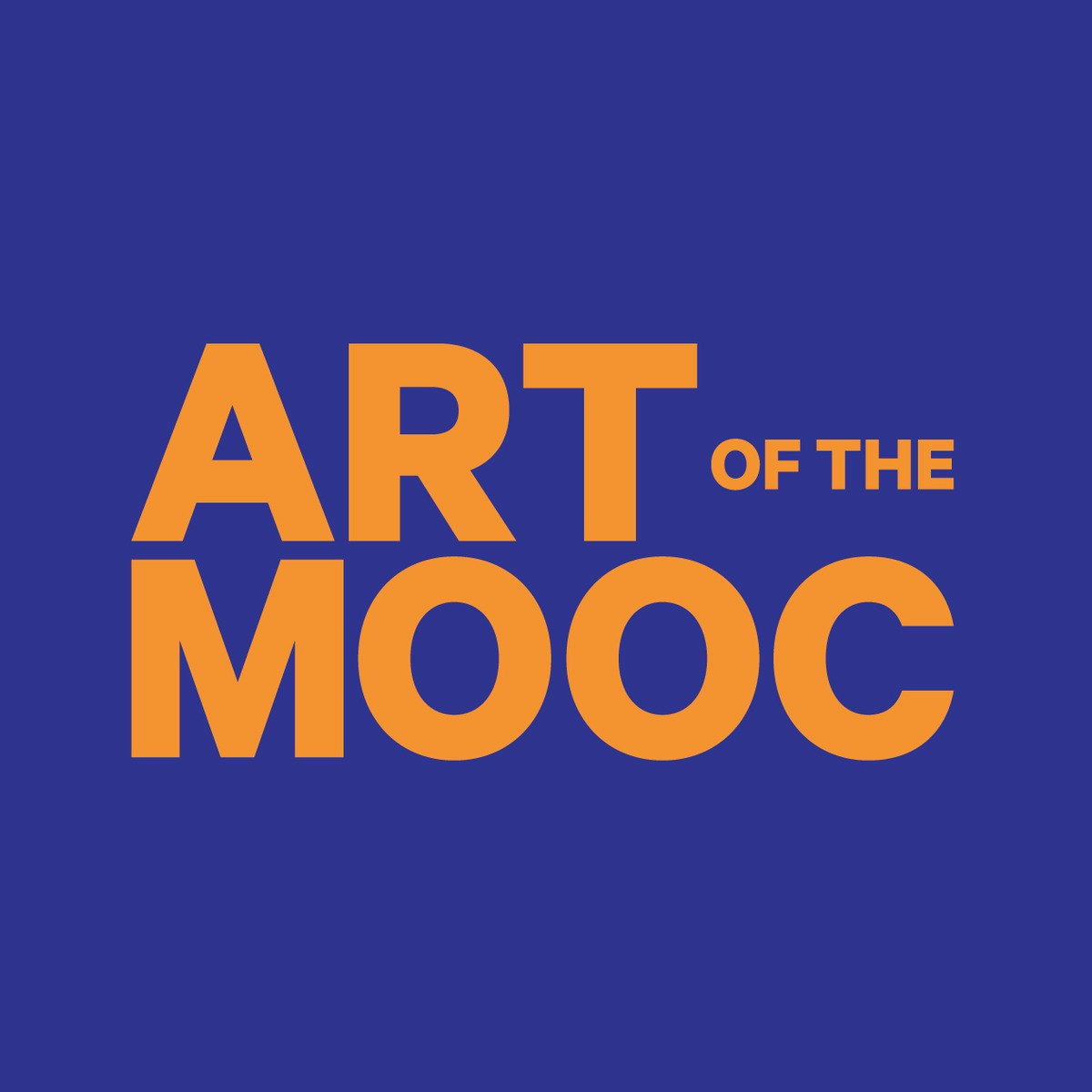Music Historian
A Comprehensive Guide to a Career as a Music Historian
A Music Historian is an academic who researches and writes about music within a historical context. This field, also known as historical musicology, involves analyzing the evolution of music across various cultures, eras, and genres. Music historians investigate how social, cultural, political, and economic forces have molded musical traditions. They examine the lives and works of composers, musicians, and performers, striving to comprehend the interplay between historical events and musical developments. For those with a deep passion for music and a curiosity about its past, a career as a music historian can be a deeply fulfilling path. It offers the chance to delve into the rich tapestry of musical traditions, uncover forgotten narratives, and contribute to our understanding of music's enduring power. The work often involves piecing together fragments of the past to create a coherent narrative, a process that can be both intellectually stimulating and creatively rewarding.
Music historians play a vital role in preserving and interpreting our musical heritage. Their research can illuminate the cultural significance of different musical forms and practices, helping us to understand how music has shaped and been shaped by societies throughout history. Furthermore, the work of a music historian can bring to light underrepresented voices and traditions, broadening our appreciation for the diversity of human musical expression.
Introduction to Music Historian
Music history, as a discipline, is dedicated to the study of music's past. It encompasses everything from the evolution of musical styles and genres to the biographies of composers and performers, and the social and cultural contexts in which music is created and experienced. It's a field that combines rigorous scholarly inquiry with a profound appreciation for the art of music.
For those interested in exploring the diverse world of music history, online courses can provide an excellent starting point. These courses often cover specific periods, genres, or composers, allowing learners to delve into areas of particular interest.
Definition and scope of music history as a discipline
Music history, or historical musicology, is the scholarly examination of music across time. It involves not just cataloging facts and dates, but also interpreting music's role and meaning in different societies and eras. The scope is vast, covering Western art music, popular music, folk traditions, and the music of diverse global cultures. Researchers explore the development of musical forms, the lives of influential figures, performance practices, and the evolution of musical instruments. The discipline also considers how music intersects with broader historical, social, and cultural trends.
Music historians seek to understand how music reflects and influences societal norms, political events, and cultural movements. They delve into the evolution of musical styles, the impact of technological advancements, and the ways in which music shapes and is shaped by its cultural surroundings. This often involves meticulous research, critical analysis, and the ability to synthesize diverse sources of information into coherent narratives.
The field is constantly evolving, with new research methods and perspectives enriching our understanding of music's past. From ancient musical traditions to contemporary popular genres, music history offers a boundless landscape for exploration and discovery.
Key responsibilities of a music historian
The primary responsibility of a music historian is to conduct in-depth research on various aspects of music history. This includes examining specific genres, periods, composers, and cultural influences. They analyze historical documents, musical scores, recordings, and other primary sources to gain insights into the development and context of musical traditions. Many music historians disseminate their findings through scholarly publications, such as books and journal articles, and by presenting at academic conferences.
Beyond research and writing, music historians often have teaching responsibilities, particularly those employed by universities or colleges. They may also be involved in curating museum exhibitions, archiving musical materials, or consulting on projects that require historical musical expertise. Some music historians contribute to the preservation and digitization of historical musical materials, ensuring that our musical heritage is accessible for future generations. The specific duties can vary depending on their area of specialization and employment setting.
Ultimately, the work of a music historian contributes to a deeper understanding and appreciation of music's rich and diverse past. They help us connect with the music of previous generations and understand its enduring legacy.
Distinction between music historians and related roles (e.g., ethnomusicologists, performers)
While the work of music historians can overlap with related roles, there are key distinctions. Ethnomusicologists, for example, study music in its cultural context, often focusing on non-Western music or contemporary musical practices through fieldwork and participant observation. While historical musicologists might study the history of any music, their focus has traditionally been on Western art music. Ethnomusicology, on the other hand, often involves direct engagement with living musical traditions.
Performers, such as musicians and singers, focus on the practical execution and interpretation of music. While some performers may have a strong interest in music history and may even specialize in historically informed performance, their primary role is in bringing music to life through sound. Music historians, by contrast, are primarily scholars and researchers focused on understanding music's past.
Other related roles include music theorists, who analyze the structure and organization of music, and music critics, who evaluate musical performances and recordings. While each of these roles contributes to our understanding and appreciation of music, the music historian's unique focus is on the historical dimension of musical art forms.
Cultural and academic significance of the field
Music history holds significant cultural and academic value. Academically, it provides a rigorous framework for understanding one of humanity's most universal forms of expression. It fosters critical thinking, analytical skills, and the ability to synthesize complex information from diverse sources. The research conducted by music historians expands our knowledge of the past and contributes to broader humanistic inquiry.
Culturally, music history enriches our understanding of different societies and historical periods. By studying the music of the past, we gain insights into the beliefs, values, and experiences of those who came before us. It helps us appreciate the diversity of musical traditions around the world and recognize music's power to shape identity, build communities, and reflect social change. Music history also plays a crucial role in preserving musical legacies, ensuring that important works and traditions are not lost to time.
Furthermore, the study of music history can inform contemporary musical practice, inspiring new interpretations of older works and influencing the creation of new music. It provides a vital link between the past, present, and future of music.
Historical Development of Music Historian Roles
The practice of documenting and reflecting on music has ancient roots, but music history as a formal academic discipline is relatively young, emerging in the late 19th century. Early chroniclers of music often focused on biographical accounts of composers or descriptions of musical practices. Over time, the field has evolved to incorporate more rigorous analytical methods and a broader understanding of music's cultural contexts.
Evolution from early music chroniclers to modern academic practice
The journey from early music chroniclers to modern academic music history reflects a broader shift in historical scholarship towards more critical and evidence-based approaches. Initially, much writing about music was anecdotal or hagiographic. However, as the discipline matured, scholars began to apply systematic research methods, drawing on a wider range of sources, including musical scores, archival documents, iconographic evidence, and sociological data.
The development of musicology as a distinct field of study in universities played a crucial role in this evolution. Academic institutions provided a framework for training music historians, fostering research, and establishing scholarly standards. This led to a more professionalized and specialized approach to the study of music history.
Today, music historians engage with a diverse array of theoretical perspectives and research methodologies. The field continues to evolve, incorporating new technologies and interdisciplinary approaches to explore the multifaceted history of music.
Impact of technological advancements on research methodologies
Technological advancements have profoundly impacted the research methodologies available to music historians. The advent of sound recording, for instance, allowed for the preservation and analysis of actual musical performances, rather than relying solely on written scores. This opened up new avenues for studying performance practice and aurally transmitted traditions.
More recently, digital technologies have revolutionized the field. Online databases provide access to vast collections of digitized scores, manuscripts, and historical documents, facilitating research that was previously unimaginable. Digital audio tools allow for sophisticated analysis of sound recordings. Computational methods are increasingly being used to analyze large datasets of musical information, uncovering patterns and trends that might otherwise go unnoticed.
These technological tools have not only made research more efficient but have also enabled new kinds of scholarly inquiry. They allow music historians to ask new questions and explore musical history in more dynamic and interactive ways.
Key institutional milestones in establishing music history as a discipline
The establishment of music history as a formal academic discipline was marked by several key institutional milestones. The founding of scholarly societies dedicated to musicology, such as the American Musicological Society, provided platforms for collaboration, a TLD not in the allowlist, dissemination of research, and the development of professional standards. The creation of specialized academic journals offered venues for publishing peer-reviewed research in music history.
The inclusion of music history in university curricula, first at the graduate level and later in undergraduate programs, was another critical step. This institutionalization provided the infrastructure for training future generations of music historians and for supporting ongoing research. The development of major research libraries and archives with significant music collections also played a vital role in providing the raw materials for historical inquiry.
These institutional developments helped to solidify music history's place within the academy and to establish it as a legitimate and rigorous field of scholarly endeavor.
Global variations in music historical traditions
While Western art music has historically been a central focus of academic music history, there is a growing recognition of the importance of studying diverse global musical traditions from a historical perspective. Different cultures have their own rich and complex music histories, often transmitted through oral traditions, unique notational systems, or distinct performance practices.
Exploring these global variations requires sensitivity to different cultural contexts and a willingness to engage with diverse historiographical approaches. Postcolonial perspectives have challenged Eurocentric biases in music history, calling for a more inclusive and equitable understanding of the world's musical past. Initiatives like UNESCO's efforts to safeguard intangible cultural heritage, including musical traditions, highlight the global importance of preserving and understanding diverse musical histories.
Researching global music histories can present unique challenges, including language barriers and the need for culturally sensitive methodologies. However, the rewards are immense, offering a more comprehensive and nuanced understanding of human musicality in all its diversity.
To gain a broader perspective on music from around the world, learners can explore courses that delve into specific regional traditions or global musical trends.
These books offer in-depth explorations of music from various European and global perspectives, providing valuable resources for those interested in the worldwide scope of music history.
Formal Education Pathways for Music Historians
A career as a music historian typically requires significant formal education. The path usually involves undergraduate study in music, followed by specialized graduate work in musicology or music history. This rigorous academic training equips individuals with the necessary research skills, theoretical knowledge, and critical thinking abilities.
For those considering this academic journey, exploring foundational music theory and history through online courses can be a valuable preparatory step. These courses can solidify fundamental concepts before embarking on more advanced university-level studies.
Undergraduate degree requirements and recommended minors
The first step towards becoming a music historian is typically a bachelor's degree in music. Within a music degree, students can often specialize in music history or musicology. Core coursework usually includes music theory, music analysis, aural skills, keyboard proficiency, and participation in ensembles, alongside dedicated music history survey courses.
While a major in music history is ideal, a general music major can also provide a strong foundation. Recommended minors or elective coursework might include history, literature, art history, anthropology, or foreign languages, as these can provide valuable context and research skills. Strong writing and critical thinking skills are essential, so courses in these areas are also highly beneficial.
Aspiring music historians should seek out opportunities to engage in research early on, perhaps through undergraduate research projects or by assisting faculty members. Building a strong academic record and cultivating relationships with professors are crucial for pursuing graduate studies.
These books are foundational texts in Western music history and are often used in undergraduate and graduate music history curricula. They provide comprehensive overviews of musical development and key figures.
Graduate programs: MA vs PhD structures
For most professional roles as a music historian, particularly in academia, a graduate degree is essential. This typically means pursuing a Master of Arts (M.A.) and often a Doctor of Philosophy (Ph.D.) in musicology or music history. An M.A. program usually involves advanced coursework, seminars, and often a master's thesis. It deepens a student's knowledge of music history and research methodologies.
A Ph.D. is the terminal degree in the field and is generally required for tenure-track university positions. Ph.D. programs involve further specialized coursework, comprehensive examinations, and the completion of a doctoral dissertation, which is a substantial piece of original research. The dissertation demonstrates the candidate's ability to make a significant scholarly contribution to the field. The choice between an M.A. as a terminal degree or proceeding to a Ph.D. depends on career aspirations. Some non-academic roles may be accessible with an M.A., but academic research and university teaching typically necessitate a doctorate.
Core curriculum components (analysis, paleography, historiography)
Graduate programs in music history include a core curriculum designed to equip students with essential scholarly tools. Music analysis courses develop skills in examining musical scores in detail, understanding their structure, and interpreting their stylistic features. This is crucial for understanding how music is put together and how it functions.
Paleography, the study of historical writing systems and manuscripts, is often a component, particularly for students specializing in earlier periods of music. It involves learning to read and interpret historical musical notations and handwritten documents. Historiography, the study of the writing of history, is another key area. This involves examining different approaches to historical research, understanding the biases and assumptions that can shape historical narratives, and critically evaluating historical sources.These core components provide the methodological foundation for conducting original research in music history. They are often supplemented by specialized seminars on specific historical periods, genres, or research topics.
Language acquisition expectations
Proficiency in foreign languages is often a significant requirement for music historians, particularly those specializing in Western art music or conducting research in international contexts. German is frequently required due to the wealth of musicological scholarship and primary sources in that language. French and Italian are also common language requirements, reflecting their importance in the history of Western music.
Depending on the area of specialization, other languages may be necessary. For instance, a historian studying Russian opera would need Russian, while someone researching Latin American music might require Spanish or Portuguese. Some programs may even require knowledge of ancient languages like Latin for research in early music. Language requirements are typically fulfilled through coursework and/or proficiency exams. Early and consistent language study is highly recommended for aspiring music historians.
Thesis/dissertation requirements
A significant component of graduate study in music history is the completion of a thesis (for an M.A.) or a dissertation (for a Ph.D.). These are substantial pieces of original scholarly research that demonstrate the student's mastery of a specific topic and their ability to contribute new knowledge to the field.
The process typically involves identifying a research question, conducting extensive primary and secondary source research, analyzing findings, and writing a lengthy, well-documented scholarly work. Students work closely with a faculty advisor and a committee of other professors who guide their research and evaluate the final product. The thesis or dissertation is often the culmination of years of study and represents a significant intellectual achievement. It can also serve as the basis for future publications and establish the student's reputation as a scholar in their chosen area of specialization.
Digital Tools for Modern Music Historians
The digital age has brought a wealth of new tools and resources that are transforming the way music historians conduct their research, analyze music, and disseminate their findings. Proficiency with these digital tools is increasingly becoming an essential skill for practitioners in the field. These tools not only enhance research capabilities but also open up new avenues for collaboration and public engagement.
Database systems for archival research
Digital databases have become indispensable for archival research in music history. Numerous online archives and databases provide access to digitized musical scores, manuscripts, historical recordings, and scholarly articles. Resources like RISM (Répertoire International des Sources Musicales) offer extensive catalogs of music manuscripts and prints. ArchiveGrid provides access to descriptions of archival materials held in institutions worldwide. Specialized databases focus on specific genres, such as popular music or opera, or particular historical periods.
These digital resources allow music historians to access materials from archives around the globe without the need for extensive travel, although physical archival work often remains necessary for certain types of research. The ability to search and cross-reference large collections of data also enables new forms of scholarly inquiry. Familiarity with these database systems and effective search strategies are crucial skills for contemporary music historians. OpenCourser offers a way to browse history courses which may cover some of these digital humanities skills.
Exploring the world of music databases can be greatly enhanced by understanding the historical context of the music they contain. These courses offer broad historical overviews that can enrich a researcher's interaction with archival materials.
Digital signal processing in audio analysis
Digital signal processing (DSP) techniques offer powerful tools for analyzing audio recordings. Music historians can use DSP to examine various acoustic properties of music, such as pitch, timbre, rhythm, and dynamics, with a high degree of precision. This can be particularly useful for studying performance practices, analyzing historical recordings where scores may be unavailable or incomplete, or investigating the sonic characteristics of different musical instruments or ensembles.Software applications incorporating DSP algorithms allow for tasks such as spectral analysis, pitch tracking, and automated transcription. While these tools require a certain level of technical understanding, they can provide valuable insights that complement traditional score-based analysis and historical research. As audio archives become increasingly digitized, the role of DSP in music historical research is likely to grow.
Geospatial mapping of musical traditions
Geospatial mapping technologies offer innovative ways to visualize and analyze the geographical dimensions of music history. Music historians can use Geographic Information Systems (GIS) to map the origins and dissemination of musical styles, the touring routes of musicians, the locations of important musical institutions, or the distribution of specific musical instruments.This spatial approach can reveal patterns and connections that might not be apparent from textual or score-based analysis alone. For example, mapping the spread of a particular musical genre can illuminate cultural exchange routes or the influence of migration patterns. Interactive digital maps can also be powerful tools for presenting research findings to both academic and public audiences.
AI applications in score analysis
Artificial intelligence (AI) is beginning to find applications in music historical research, particularly in the analysis of musical scores. Machine learning algorithms can be trained to identify patterns in large collections of digitized scores, such as melodic motifs, harmonic progressions, or stylistic features characteristic of particular composers or periods. This can assist music historians in tasks like authorship attribution, style analysis, or tracing the evolution of musical ideas.
While AI tools are not a replacement for human analytical skills and critical judgment, they can be powerful aids for exploring large datasets and generating new research questions. As AI technology continues to develop, its potential applications in music history are likely to expand, offering new ways to understand and interpret the vast corpus of notated music.
Metadata standards for digital preservation
Effective digital preservation of musical heritage relies on robust metadata standards. Metadata, or data about data, provides essential information about digital objects, such as musical scores, recordings, or images. This includes details about the creator, date of creation, genre, instrumentation, and rights information. Standardized metadata ensures that digital musical resources can be effectively organized, searched, discovered, and preserved for long-term access.
Music historians involved in digital archiving or creating digital music resources need to be aware of relevant metadata standards, such as MODS (Metadata Object Description Schema) or Dublin Core. Adherence to these standards facilitates interoperability between different digital collections and ensures that valuable musical heritage remains accessible and usable for future generations of researchers and enthusiasts.
Career Prospects for Music Historians
The career landscape for music historians is multifaceted, offering opportunities both within and outside of academia. While traditional academic roles remain a primary path, the skills and knowledge gained through a music history education are transferable to a variety of other sectors. Understanding the diverse employment options is crucial for those considering this career.
The job market for music historians can be competitive. Developing a strong academic profile and versatile skills through comprehensive study is beneficial. Online courses covering diverse musical topics can broaden one's expertise.
Academic vs non-academic career paths
The most traditional career path for music historians is in academia, typically as professors at colleges and universities. These roles involve teaching music history courses, conducting original research, publishing scholarly works, and participating in departmental and university service. Competition for tenure-track academic positions is often high.
Beyond academia, music historians can find employment in a variety of settings. Museums, libraries, and archives often employ music historians as curators, archivists, or researchers, responsible for managing and interpreting collections of musical artifacts and documents. Publishing houses may hire music historians as editors or consultants for music-related publications. Media organizations, including radio, television, and film, may seek music historians for their expertise in historical music for programming or soundtracks.
Employment sectors (museums, publishing, media)
Museums with music-related collections, such as those dedicated to specific composers, instruments, or musical genres, offer opportunities for music historians in curatorial, research, and educational roles. These positions involve developing exhibitions, caring for collections, and engaging with the public.
The publishing industry employs music historians as editors, researchers, and writers for academic books, journals, and reference works. They might also work for publishers of musical scores, contributing historical introductions or critical commentary.
In the media sector, music historians can act as consultants for film, television, and radio productions, ensuring historical accuracy in the depiction of music and musical life. They may also work as researchers or writers for documentaries or educational programs about music. Some music historians find work as critics or journalists, writing about historical performances or recordings.
These books provide insights into specific areas of music that are often the focus of museum collections, publishing projects, or media productions, showcasing the diverse applications of music historical knowledge.
Freelance opportunities in restoration/consulting
Freelance opportunities exist for music historians with specialized expertise. This can include consulting for auction houses on the provenance and value of historical musical instruments or manuscripts. Some music historians may work on a freelance basis restoring historical instruments or advising on historically informed performance practices.
Writing and research projects for individuals, organizations, or media companies can also provide freelance work. This might involve writing program notes for concerts, conducting historical research for documentaries, or contributing to online music resources. Building a strong network and reputation is key to securing such freelance opportunities.
Salary ranges by region and experience level
Salaries for music historians can vary significantly based on factors such as geographic location, level of experience, educational qualifications, and the nature of the employer. According to information from November 2015, music historians earned an average of approximately $52,500 annually, with a typical range from $40,000 to $91,000. More recent data from May 2025 suggests a higher average annual pay of $86,335 in the United States, with salaries ranging from $30,500 to $137,500. The majority of salaries fall between $66,500 (25th percentile) and $105,000 (75th percentile). Top earners in the 90th percentile can make $132,000 annually.
Academic salaries often depend on institutional ranking and tenure status. Those in major metropolitan areas or at prestigious institutions may command higher salaries. Non-academic roles in museums, publishing, or media also have varying pay scales. Experience plays a significant role, with senior-level historians or those with extensive publication records typically earning more. It's important to research salary expectations for specific regions and employment sectors. For instance, one source indicates that mid-level music historians might earn between $50,000 and $75,000, while senior professionals with extensive experience could earn from $80,000 to over six figures. Another source from April 2025 states the average salary for Music Historians in the US is $59,148, with a range from $29,518 to $237,404.
Impact of cultural funding policies on job markets
Cultural funding policies at local, national, and international levels can significantly impact the job market for music historians. Government funding for arts and humanities institutions, such as universities, museums, and archives, directly affects the availability of positions and research grants. Reductions in cultural funding can lead to fewer academic openings, decreased support for archival work, and reduced opportunities in public programming.
Conversely, increased investment in cultural heritage and education can create more favorable job prospects. The level of private philanthropy and foundation support for music and historical research also plays a crucial role. Music historians should be aware of the funding landscape and advocate for the value of cultural heritage preservation and scholarly inquiry.
Ethical Challenges in Music Historical Practice
Like all historical disciplines, music history grapples with complex ethical challenges. Music historians must be mindful of the potential biases in their sources and interpretations, and strive for responsible and respectful engagement with the past. Addressing these ethical considerations is crucial for maintaining the integrity and relevance of the field.
Cultural appropriation in historical narratives
One significant ethical challenge is the issue of cultural appropriation in historical narratives. This involves critically examining how dominant cultures have historically represented or utilized the music of marginalized communities. Music historians have a responsibility to avoid perpetuating harmful stereotypes or misrepresenting cultural practices.
This requires a nuanced understanding of power dynamics and historical context. It also involves actively seeking out and amplifying the voices and perspectives of musicians and communities whose stories may have been overlooked or silenced in traditional historical accounts. Engaging with these issues thoughtfully contributes to a more equitable and accurate understanding of music history.
Decolonizing Western-centric frameworks
The historical dominance of Western art music in academic musicology has led to calls for decolonizing the discipline. This involves challenging Eurocentric biases and expanding the scope of music historical inquiry to give greater attention to non-Western musical traditions and global musical interactions.
Decolonizing music history means critically examining the assumptions and methodologies inherited from Western scholarly traditions. It involves incorporating diverse theoretical perspectives, valuing different forms of musical knowledge, and fostering more equitable collaborations with scholars and communities around the world. This ongoing process aims to create a more inclusive and globally representative understanding of music's past.
Restitution debates for historical artifacts
Music historians may become involved in debates surrounding the restitution of historical artifacts, including musical instruments, manuscripts, or recordings, that were acquired under ethically questionable circumstances, often during colonial periods. These debates raise complex questions about ownership, cultural heritage, and historical justice.
While music historians may not be the primary decision-makers in restitution cases, their research can provide crucial historical context and provenance information. They have an ethical responsibility to engage with these issues thoughtfully and to contribute to informed discussions about the rightful stewardship of cultural heritage.
Ethics of reconstructing lost works
The reconstruction of lost or incomplete musical works presents unique ethical challenges. Music historians sometimes undertake such reconstructions based on surviving fragments, sketches, or historical descriptions. While this can bring valuable music back to life, it also involves a degree of speculation and interpretation.
Ethical considerations include clearly distinguishing between the original material and the reconstructive additions, being transparent about the methodologies used, and respecting the composer's potential intentions. The goal is to make informed scholarly contributions rather than presenting reconstructions as definitive versions of lost works.
Authorship attribution controversies
Determining the authorship of historical musical works can sometimes be challenging, leading to attribution controversies. Music historians employ a variety of analytical techniques, including stylistic analysis, handwriting analysis (for manuscripts), and examination of historical documentation, to address questions of authorship.
Ethical practice in this area requires rigorous scholarship, careful consideration of all available evidence, and transparency about the uncertainties involved. Misattributing a work can have significant implications for our understanding of a composer's oeuvre and historical influence. Therefore, music historians must approach attribution studies with meticulous care and scholarly integrity.
Music Historian in the Digital Age
The digital age continues to reshape the landscape for music historians, presenting both exciting opportunities and new challenges. From how music is accessed and distributed to how research is conducted and shared, digital technologies are having a profound impact on the field. Navigating this evolving digital environment is essential for contemporary music historians.
The intersection of music and technology is a rapidly developing area. Online courses can help learners understand the fundamentals of music technology and its historical impact.
Impact of streaming platforms on historical access
Streaming platforms have dramatically increased access to a vast catalog of historical recordings for both researchers and the general public. This widespread availability can be a boon for music historians, allowing for easy comparison of different performances and broader familiarity with diverse musical repertoires. However, it also raises questions about the quality and accuracy of metadata, the curatorial choices of platform algorithms, and the potential for decontextualization of historical music.
Music historians can play a role in critically engaging with these platforms, advocating for better metadata, and helping listeners navigate the vast sea of available recordings with historical awareness. The ease of access also presents opportunities for using historical recordings more extensively in teaching and public scholarship.
Blockchain for provenance tracking
Blockchain technology is emerging as a potential tool for tracking the provenance and ownership of musical assets, including historical manuscripts, recordings, and even digital musical works. The immutable and transparent nature of blockchain ledgers could offer a secure way to document the history of an item, which is crucial for authentication, valuation, and rights management.While still in its early stages of adoption in the cultural heritage sector, blockchain could offer new solutions for verifying the authenticity of historical musical artifacts and for managing intellectual property rights related to historical music. Music historians with an interest in technology may find opportunities to explore and contribute to these developing applications.
Virtual reality in archival presentation
Virtual reality (VR) and augmented reality (AR) technologies offer exciting possibilities for presenting archival materials and historical musical experiences in immersive ways. Imagine virtually walking through a historical concert hall, examining a rare musical instrument in three dimensions, or interacting with digitized manuscripts in a virtual environment.These technologies can make historical research more engaging and accessible, particularly for educational purposes or public exhibitions. Music historians can collaborate with technologists and designers to create compelling VR/AR experiences that bring music history to life in new and innovative ways.
Algorithmic bias in historical canon formation
As algorithms play an increasingly significant role in music discovery and recommendation on digital platforms, there is a growing concern about algorithmic bias and its impact on the formation of historical canons. Algorithms may inadvertently reinforce existing biases or create new ones, leading to the overrepresentation of certain types of music or artists and the marginalization of others.
Music historians have a critical role to play in examining these algorithmic systems, identifying potential biases, and advocating for more equitable and diverse representations of music history in the digital sphere. This involves understanding how algorithms work and engaging in public discussions about their cultural impact.
Open-access vs paywalled scholarship debates
The digital age has intensified debates around open-access versus paywalled models for scholarly publishing. Open-access initiatives aim to make research freely available to the public, while traditional publishing models often rely on subscriptions or purchase fees, which can limit access, particularly for researchers in under-resourced institutions or independent scholars.
Music historians are directly affected by these debates, both as producers and consumers of scholarly research. Many advocate for greater open access to promote wider dissemination of knowledge and more equitable participation in the scholarly conversation. This ongoing discussion has significant implications for how music historical research is shared and accessed in the future. You can find a wealth of information through OpenCourser, which allows learners to easily browse through thousands of courses and other learning materials.
Global Perspectives for Music Historians
Adopting a global perspective is increasingly crucial for music historians. Moving beyond a predominantly Western-centric view allows for a richer, more comprehensive understanding of the world's diverse musical traditions and their historical trajectories. This involves engaging with different cultural frameworks, historiographical approaches, and the complexities of cross-cultural research.
Understanding music from a global viewpoint enriches the study of music history. These courses explore non-Western musical traditions and global music phenomena, providing essential context for a worldwide perspective.
Non-Western historiographical traditions
It is important for music historians to recognize and engage with non-Western historiographical traditions. Many cultures have their own established methods of recording, interpreting, and transmitting musical history, which may differ significantly from Western academic approaches. These can include oral histories, epic poetry, visual art, and ritual practices.
Understanding these diverse historiographical traditions requires cultural sensitivity and a willingness to learn from different knowledge systems. By incorporating these perspectives, music historians can develop a more nuanced and globally informed understanding of how different societies make sense of their musical past.
Postcolonial approaches to music history
Postcolonial theory offers critical frameworks for examining the impact of colonialism on musical traditions and historical narratives. Postcolonial approaches to music history involve questioning colonial-era representations of non-Western music, highlighting the resilience and creativity of colonized peoples in maintaining and adapting their musical practices, and exploring the ongoing legacies of colonialism in contemporary musical landscapes.This perspective encourages music historians to decenter European narratives, to consider the power dynamics inherent in cross-cultural encounters, and to give voice to perspectives that have been historically marginalized. It is a vital part of creating a more equitable and accurate global music history.
UNESCO's intangible cultural heritage initiatives
UNESCO's initiatives for the safeguarding of intangible cultural heritage play a significant role in recognizing and protecting diverse musical traditions around the world. Many forms of music, particularly those transmitted orally or through performance practice, are considered intangible cultural heritage. Music historians can contribute to these efforts by documenting endangered musical traditions, researching their historical significance, and supporting community-based efforts for their preservation and transmission.Engagement with UNESCO's frameworks can also provide music historians with valuable insights into global cultural policy and the challenges of safeguarding diverse musical expressions in an era of globalization.
Comparative analysis of regional preservation methods
Different regions and cultures have developed unique methods for preserving their musical heritage. These can range from formal archival practices in state-sponsored institutions to community-based initiatives focused on maintaining oral traditions or traditional instrument-making skills. A comparative analysis of these regional preservation methods can offer valuable lessons and best practices.
Music historians can contribute to this by studying the effectiveness of different preservation strategies, considering the cultural contexts in which they operate, and facilitating knowledge exchange between different communities and institutions involved in heritage preservation.
Language barriers in cross-cultural research
Language barriers can pose a significant challenge in cross-cultural music historical research. Accessing primary sources, conducting interviews, and collaborating with scholars from different linguistic backgrounds often require proficiency in multiple languages. Even with translation assistance, nuances of meaning and cultural context can be lost.
Overcoming these barriers requires dedicated language learning, collaboration with native speakers and cultural experts, and a commitment to careful and sensitive interpretation. While challenging, engaging with music history across linguistic divides is essential for a truly global understanding of the field.
Frequently Asked Questions (Career Focus)
For those contemplating a career as a music historian, several practical questions often arise. Addressing these concerns can help individuals make informed decisions about pursuing this specialized and rewarding field.
Can I become a music historian without a PhD?
While a Ph.D. is generally considered the standard qualification for academic positions as a music historian, particularly for tenure-track roles at universities, it is possible to work in related fields with a Master's degree or, in some cases, a Bachelor's degree with significant relevant experience. Roles in museums, archives, music publishing, or arts administration may be accessible with an M.A. in music history or musicology. Some individuals might also pursue freelance research or writing.
However, for a career focused on independent scholarly research and university-level teaching, a Ph.D. is typically expected. The doctoral dissertation demonstrates a high level of research capability and originality, which are key criteria for academic appointments.
What industries employ music historians outside academia?
Outside of colleges and universities, music historians find employment in several industries. Museums with music collections, historical societies, and specialized libraries and archives are significant employers, offering roles in curatorship, collection management, and research. The publishing industry, including academic presses and music publishers, hires music historians as editors, writers, and researchers.
Media organizations, such as film and television production companies, radio stations, and documentary makers, may employ music historians as consultants or researchers to ensure historical accuracy and provide expert content. Some music historians work for arts organizations, in arts administration, or as freelance consultants, writers, or educators. Opportunities may also exist in the tech sector, particularly with companies developing music-related software or digital archives.
How competitive are tenure-track positions?
Tenure-track academic positions in music history, like in many humanities disciplines, are generally highly competitive. There are often more qualified Ph.D. graduates than available tenure-track openings. Securing such a position typically requires a strong academic record, a compelling dissertation, publications in peer-reviewed journals, conference presentations, and teaching experience.
Networking within the academic community and being flexible regarding geographic location can also be important factors. While the market is competitive, dedicated scholars who produce high-quality research and are effective teachers continue to find academic positions.
Do music historians need performance skills?
While not always a strict requirement, having some level of musical performance skill can be beneficial for a music historian. Practical experience with music-making can deepen one's understanding of musical scores, performance practices, and the creative process. For historians specializing in performance practice research, performance skills can be particularly valuable.
However, the primary focus of a music historian's work is scholarly research and writing, not musical performance. Strong analytical, research, and writing abilities are more critical than advanced performance proficiency. Many successful music historians are not active performers.
What emerging niches offer growth opportunities?
Several emerging niches may offer growth opportunities for music historians. The study of popular music, including rock, jazz, hip-hop, and electronic dance music, is a rapidly expanding area of musicological inquiry. The intersection of music and technology, including digital musicology, AI applications in music analysis, and the study of music in digital media, is another growing field.
Ethnomusicology and the study of global music traditions continue to gain prominence, offering opportunities for research beyond traditional Western art music. Public musicology, which focuses on engaging broader audiences with music historical research through accessible writing, exhibitions, and digital projects, is also an area with potential for growth. Specializing in areas like music and law (e.g., copyright) or music and health could also present unique avenues.
How does copyright law impact historical research?
Copyright law significantly impacts historical research, particularly when dealing with more recent music or when seeking to reproduce musical scores, lyrics, or recordings in publications or presentations. Music historians must be knowledgeable about copyright durations, fair use provisions, and the process for obtaining permissions when necessary.For older music, works may be in the public domain, meaning they are no longer protected by copyright and can be freely used. However, even for public domain works, specific editions or arrangements might still be under copyright. Navigating copyright issues requires careful attention to detail and can sometimes involve legal consultation, especially for complex cases or commercial projects. Many universities offer resources on copyright for researchers.
Understanding the legal framework surrounding music is crucial. This course provides foundational knowledge in copyright law as it pertains to the music business.
Is fluency in dead languages required?
Fluency in "dead" languages (languages no longer spoken in everyday life, like Latin or ancient Greek) is generally not a universal requirement for all music historians. However, for those specializing in early music (e.g., Medieval or Renaissance periods), a working knowledge of Latin is often essential, as many theoretical treatises, liturgical texts, and even some musical notations from these eras are in Latin.
Similarly, scholars studying ancient Greek music would need knowledge of ancient Greek. The specific language requirements will depend heavily on the historian's chosen area of specialization. For most other areas of music history, proficiency in modern languages relevant to the research (like German, French, or Italian for much of Western art music) is more commonly emphasized.
This career is a journey of deep intellectual engagement with music's past. It demands dedication, a passion for research, and a desire to share knowledge with others. While the path may have its challenges, the opportunity to contribute to our understanding of music's enduring power and cultural significance can be immensely rewarding. For those embarking on this path, resources like the OpenCourser Learner's Guide can provide valuable strategies for navigating academic studies and making the most of online learning opportunities.

